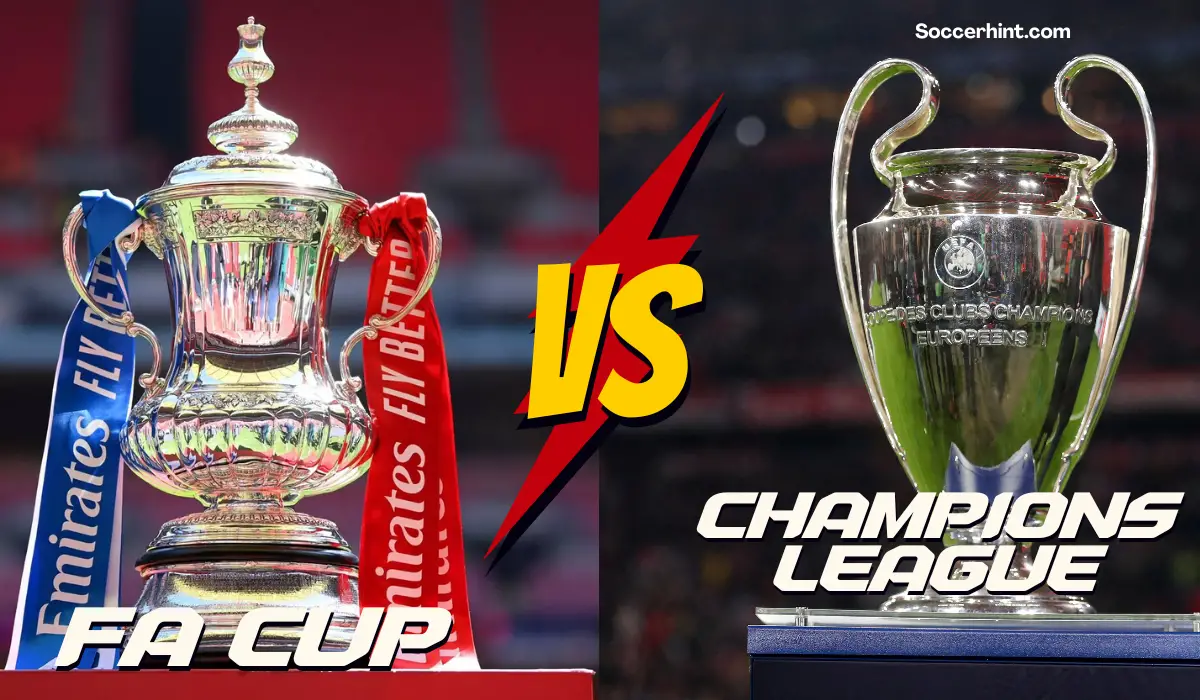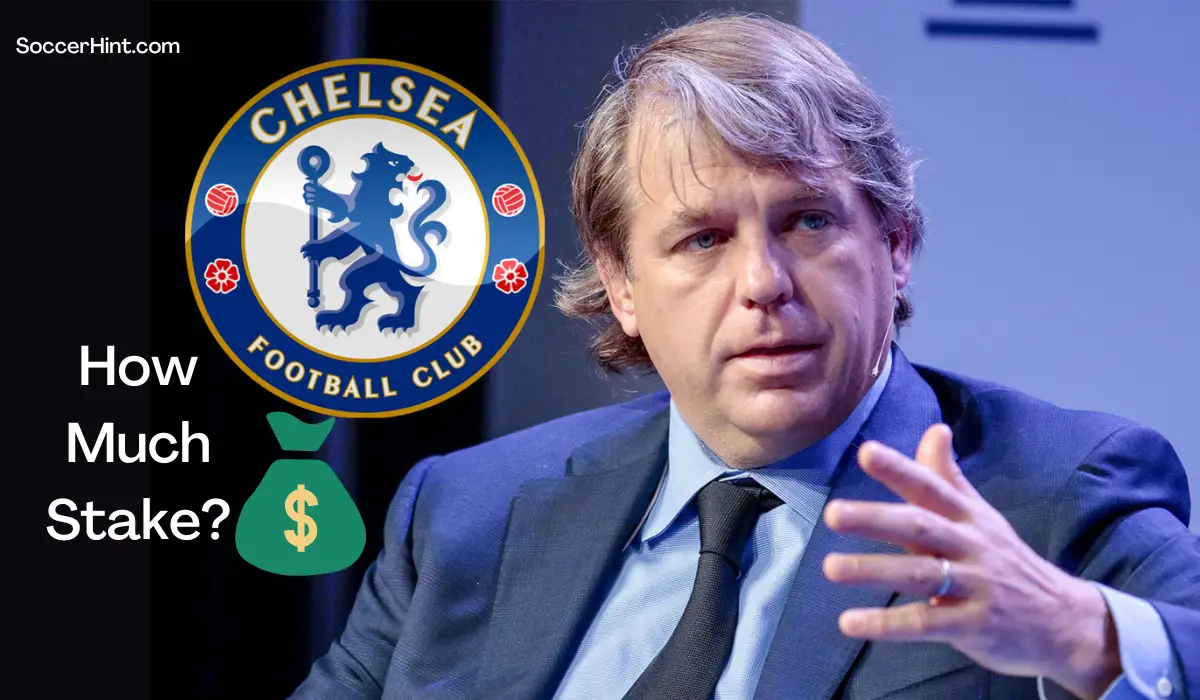As football fans, it is normal to compare the FA Cup vs the Champions League because both are prestigious competitions.
The FA Cup, formally known as the Football Association Challenge Cup, is an annual football competition with a knockout format for English men’s domestic soccer. The Football Association (The FA) is in charge of organizing and naming the competition, which has been known as The Emirates FA Cup since 2015 as a result of its main sponsor.
The Union of European Football Associations (UEFA) oversees the yearly premier club football (soccer) competition known as the UEFA Champions League. It is regarded as one of the most prestigious competitions in football. To compete for the title of best club team in Europe, the competition brings together the best football clubs from various European nations.
Both the FA Cup and the Champions League are prestigious tournaments, but which is bigger and why?
Read Also: Premier League vs Champions League Prize Comparison
Age of the competitions
First played during the 1871–72 season, The FA Cup is the oldest national football competition in the world. And interestingly, a concurrent Women’s FA Cup has been held since 1970.
Originally a straight knockout competition only open to the winners of Europe’s domestic leagues, the European Cup was first introduced in 1955 as the Coupe des Clubs Champions Européens (French for European Champion Clubs’ Cup). The winner was considered to be the European club Champion. In 1992, the contest adopted its present name.
Being the older competition, the FA Cup comes top in this category and is surely a grandparent to the Champions League.
Mode of the competitions
The FA Cup is a single-elimination tournament and is open to all clubs that are participants in the English football league system. Clubs from the National League, English Football League (EFL), Premier League, and any other lower levels are included in this.
The Premier League teams enter the competition in the third round. The competition lasts for multiple rounds, starting in August and ending in May with the championship match. The winners of each round progress to the next round, with the semi-finals and final being played at Wembley Stadium.
Participation in the Champions League tournament is typically reserved for the top football clubs from various national leagues that are members of the Union of European Football Associations (UEFA).
From the 2024/25 season, there will be 36 teams participating in the competition, up from the previous 32, which means there will be 189 games instead of 125. A league phase will replace the group stage, with each team playing a minimum of eight games, split equally between ‘home and away’.
The top eight clubs from the league will advance directly to the knockout rounds, while teams placing ninth through 24th will compete in a two-legged play-off for a spot in the last-16, while the lowest 12 teams will be eliminated from the competition and not be eligible to play in the Europa League.
From the format of both competitions, the Champions League appears to be the more rigorous and demanding tournament. Most importantly, it allows for the participation of teams from Europe’s top leagues- which means more excitement as we get to see many of the game’s biggest stars in action, while the FA Cup tournament is open to just teams in the English football System. In this category, the Champions League comes out top.
Read Also: What’s The Championship Prize Money?
FA Cup vs Champions League: Competition Prize Money
Liverpool earned £1.8m in the 2021-22 season for beating Chelsea in penalties and the Blues settled for £900,000 after finishing as runners-up. The winner of the 2022–23 FA Cup final got a prize of £2 million, while the losing team received a prize of £1 million. However, the number of rounds a team advances through determines the overall cumulative prize money.
If a team competes from the group stage and wins every match in the Champions League and then proceeds to win the entire competition, they’ll earn a total of €69.8 million (£59m/$77m). Mirror reported that Manchester City were set to pocket £95m if they could defeat Inter Milan in the Champions League final back in June- a feat they eventually achieved.
A tournament with higher prize money is literally bigger than the one with less, the Champions League comes out big in this category and why not? – More money more respect.
Number of Television views
In the 2019/20 season, The Wembley final, which Arsenal won 2-1 over Chelsea, was watched by 8.2 million people on BBC One. It means that nearly half of the UK population who own televisions tuned in to watch the final on terrestrial television. Last season, Chelsea’s victory over Manchester United in the FA Cup women’s final at Wembley was watched by a peak TV audience of 1.4 million on BBC1. The game was also streamed more than 300,000 times on BBC iPlayer and BBC Sport Online
In France, the 2019/20 Champions League final between Bayern Munich and Paris Saint Germain was televised on TF1, and drew an average of 11.1 million viewers, making it the third most-watched Champions League final ever in France. The 2021/22 Women’s Champions League final was watched by a global audience of 3.6m according to DAZN. According to Instabul AP, a global audience of 450 million viewers watched at least some part of the Champions League final between Manchester City and Inter Milan in June.
Final Verdict
Overall, when comparing the FA Cup vs the Champions League, it is safe to say that the Champions League is the most glamorous club competition in football and is only second to the World Cup overall- and this narrative might not change anytime soon. In essence, the Champions League is bigger than the FA Cup.
From inception, footballers around the world have always wanted to play in the European top tournament and many have even switched allegiance numerous times just to achieve this feat.
The magical moments, the history, the charm, and the recognition that comes with playing in the Champions League are just too enormous for footballers to pass on. And many players have written their names in football folklore for their outstanding performances in the big Champions League games.
Aside from being the oldest football competition in the world, the FA Cup falls short behind the Champions League in virtually all categories. With more money, views, allure and decorations, the Champions League surely is a bigger competition than the FA Cup- with all due respect to the historical English football tournament.





